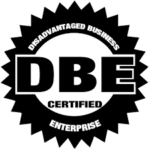Let’s get one thing straight—managing a high-stakes project isn’t the same as following a project plan. When the pressure is on, deadlines are brutal, and millions of dollars (or an entire company’s future) are on the line, the textbook approach falls apart. Yet, the traditional PMP courses keep churning out project managers who think a well-structured plan is enough to guarantee success.
It’s not.
A report from the Project Management Institute found that 11.4% of all project investment is wasted due to poor performance. Another study by McKinsey revealed that 17% of IT projects fail so badly they threaten the existence of the company. The reality? Projects don’t derail because of bad planning—they derail because most managers don’t know how to handle real-world chaos.
The Playbook Won’t Save You—Here’s What Will
1. Stakeholder Politics Will Make or Break Your Project
PMP training will tell you that stakeholder engagement is key, but it won’t teach you how to navigate office politics when executives start pulling in different directions. In high-stakes projects, people with power will have conflicting interests, and if you don’t learn how to manage their expectations, your project will get crushed by competing agendas.
How to Handle It: Identify power players early. Keep key stakeholders informed, but more importantly, make sure they feel heard. Their buy-in is worth more than a perfect project plan.
How Saulsberry Group Helps: We specialize in stakeholder management strategies that ensure alignment from the start. Our team provides structured communication plans and executive engagement frameworks to keep decision-makers on board and moving in the same direction.
2. Scope Creep Is Inevitable—Control It or Get Buried
No project in history has ever stuck exactly to the original scope. When big money and big egos are involved, the goalposts will move. The problem is, most project managers aren’t trained to push back effectively when this happens.
How to Handle It: The key isn’t avoiding scope creep—it’s managing it. Tie every new request to an impact assessment. Make decision-makers own the trade-offs: “We can add this feature, but it will cost us two extra weeks. Do you want it bad enough to delay the launch?”
How Saulsberry Group Helps: Our Transformation Management Program ensures projects remain agile while staying on track. We implement rigorous change control processes that assess scope adjustments in real time and keep leadership informed on trade-offs before commitments are made.
3. Timelines Are Lies—Plan for That
Most project timelines are fantasy. Gartner reports that only 55% of projects are completed on time, and those that do often come at the cost of quality. High-stakes projects are filled with unpredictable variables, yet project managers are still expected to deliver on unrealistic deadlines.
How to Handle It: Build in contingency time from the start. Don’t just track deadlines—track risks and dependencies. More importantly, communicate proactively. Leaders will be far more forgiving of delays if they see them coming instead of being blindsided at the last minute.
How Saulsberry Group Helps: We integrate risk management and predictive analytics into our project strategies. Our proactive risk assessment tools and early-warning systems help clients anticipate potential delays and make informed decisions before issues escalate.
4. Crisis Management Is Your Real Job
The difference between a project manager and a high-stakes project leader? One follows a plan, the other knows how to handle chaos. When things go sideways—and they will—you need to keep everyone focused and moving forward.
How to Handle It: Stay calm under pressure. When a major issue hits, don’t react emotionally. Break the problem down, present clear options, and keep the team aligned. Your ability to lead through uncertainty will define whether the project survives or collapses.
How Saulsberry Group Helps: We bring deep expertise in crisis and recovery management, providing structured escalation frameworks, real-time decision support, and battle-tested leadership strategies to keep projects moving forward no matter the challenges.
The Bottom Line
A PMP certification might get you in the door, but it won’t prepare you for the real-world challenges of high-stakes project management. When the stakes are high, you need more than methodologies—you need strategy, adaptability, and the ability to lead under pressure.
At Saulsberry Group, we specialize in executing complex, high-stakes projects with a focus on real results—not just perfect plans. Whether you need expert stakeholder management, agile project governance, or crisis leadership, we have the expertise to deliver.
If you’re facing a project where failure isn’t an option, let’s talk.
📅 Schedule a consultation today: Book an appointment



